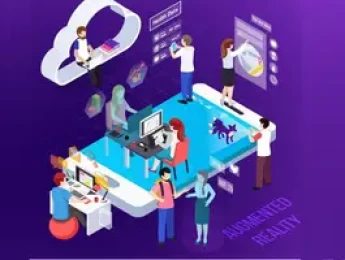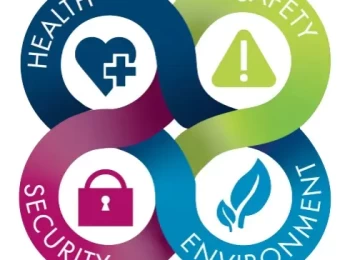Applying modern maintenance technologies can help you develop your systems to optimise performance and reduce system downtime. This can increase your return on investment and eliminate extra running costs, enabling you to focus on growth.
Focusing on technology maintenance and asset management can also assist you in other areas of your business, such as health and safety, extra employee training and support, and staying ahead of the curve against your competitors. With the huge shift in capable and diverse technologies, your clients and customers will always look to you to produce the next big thing.
Developing automated and intelligent systems will also assist in identifying risk areas, enabling a sound continuity plan based on accurate analytics, and determining a root cause analysis for any issues that occur.
To move forward, you will need to ensure that your employees are up to speed with changes, understand the requirements for development and generate new and innovative ideas using technology for the company's benefit.
Upon completion of this course, participants will be able to:
- Understand how technology contributes to service efficiency.
- Achieve outstanding results based on new technologies.
- Construct a sound action plan using technologies to enable business disaster recovery and continuity.
- Use technology to monitor and develop employees.
- Understand how to stay competitive against other services in your field.
- Develop cost-benefit thinking to prioritise changes to your operation.
- Analyse, audit, and assess your current performance and work on ways to improve your processes.
- Make effective and beneficial decisions for the growth and progression of the company while using new and improved systems.
- Assess the usefulness of potential new systems to contribute to your company's aims.
- Adhere to the international standards of asset management.
This course is designed for anyone involved in technological updates and changes or is responsible for project planning around technological development and maintenance. It would be most beneficial for:
- IT Professionals
- Engineers
- Business Owners
- Operations Managers
- Planning Managers
- Project Managers
- Managing Directors
- HR Personnel
- Change & Development Managers
This course uses a variety of adult learning styles to convey best practices and focus on technologies as a way to develop a business and move forward. Participants will participate in group seminars to determine the most productive processes and uncover new technologies to work smarter within their operation.
They will view interactive presentations to discover real-world system and technology failures and how to overcome similar risks. They will also conduct practical exercises to develop sensible project plans for the future and role-playing activities to communicate changes and development to employees and stakeholders to gain support and buy-in.
Day 5 of each course is reserved for a Q&A session, which may occur off-site. For 10-day courses, this also applies to day 10
Section 1: Maintenance Innovation & Challenging Tradition
- Asset management and keeping accurate records.
- How maintaining records accurately can improve your processes.
- Budgeting for maintenance.
- Asset failure and mitigation.
- Replacing assets within a budget.
Section 2: Risk Identification & Assessment
- Introducing risk and identifying where risk factors may be relevant.
- Applying previous failures to current processes to plan for mitigation.
- 7 steps to risk mitigation.
- Failure Mode Effect & Critical Analysis (FMECA).
- Choosing the right maintenance tasks and priorities.
Section 3: Determining a Root Cause & Implementing Change
- Multiple realities and understanding which is plausible.
- A/B testing and determining the root cause.
- System changes based on experience and requirements.
- Cause and effect relations.
- The practical side of asset management.
Section 4: Auditing, Analytics, and Benchmarking Against Competitors
- Process auditing and cadence.
- Research and competitor analysis.
- Benchmarking against the competition.
- Stakeholder engagement and buy-in into system maintenance and development.
- Benchmarking studies and how they could reflect on your reputation.
Section 5: Managing Performance & People
- The ABC influencing model.
- Negotiation techniques against budgeting.
- Your key performance indicators and how to push them to your people.
- Using key analytics to maintain and manage your operation.
- How systems maintenance can flag up underperformance.
Section 6: Decision Making & Support
- Creating a decision matrix based on maintenance technologies.
- Reviewing current technology offerings and identifying pain points.
- Customer and client journey mapping to understand the next essential steps.
- Interpreting results and making an informed decision.
Section 7: Planning for the Future
- Auditing and analytics records to monitor how change has affected the operation.
- Forecasting and identifying value-adding opportunities.
- Cause and effect charts to learn lessons for the future.
- Sophisticated movements and intelligent, forward-thinking process models.
- How systems can shape your future.
Upon successful completion of this training course, delegates will be awarded a Holistique Training Certificate of Completion. For those who attend and complete the online training course, a Holistique Training e-Certificate will be provided.
Holistique Training Certificates are accredited by the British Assessment Council (BAC) and The CPD Certification Service (CPD), and are certified under ISO 9001, ISO 21001, and ISO 29993 standards.
CPD credits for this course are granted by our Certificates and will be reflected on the Holistique Training Certificate of Completion. In accordance with the standards of The CPD Certification Service, one CPD credit is awarded per hour of course attendance. A maximum of 50 CPD credits can be claimed for any single course we currently offer.
- Course Code PI1-109
- Course Format Classroom, Online,
- Duration 5 days














